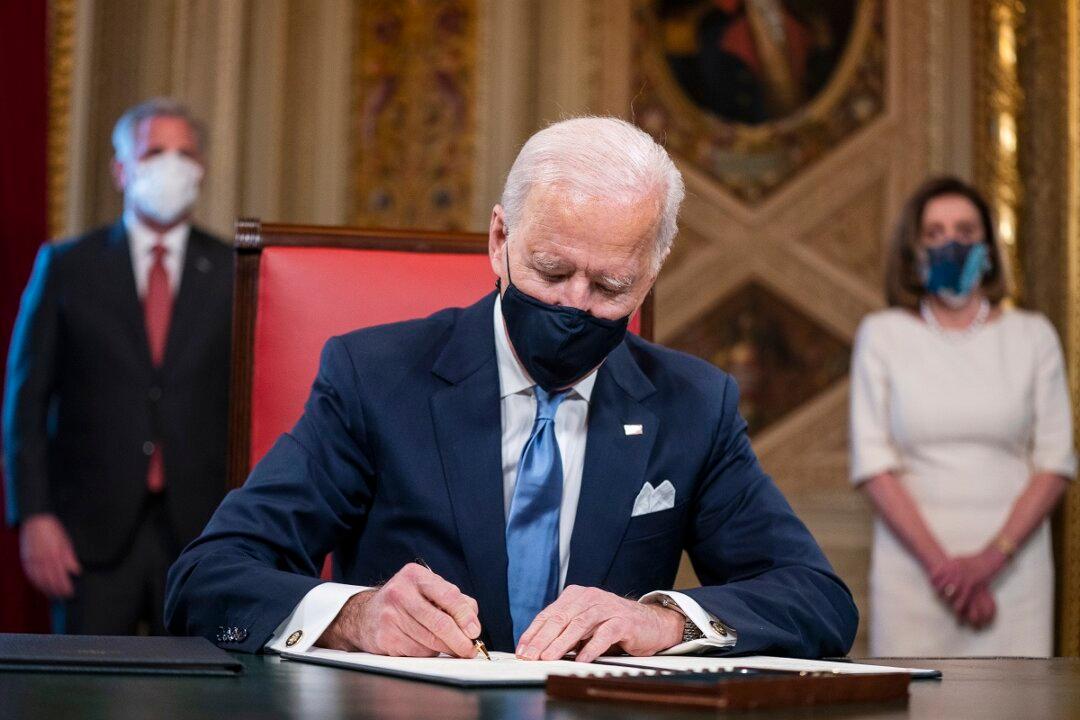Senate Republicans are mounting much less opposition to President Joe Biden’s major appointees in 2021 than Democrats did against President Donald Trump’s Cabinet nominees in 2017.
Four of Biden’s top picks have been confirmed quickly by the Senate, which is split 50-50 between Democrats and Republicans, with Vice President Kamala Harris providing the tie-breaking vote that also makes Sen. Chuck Schumer (D-N.Y.) the Senate majority leader.





